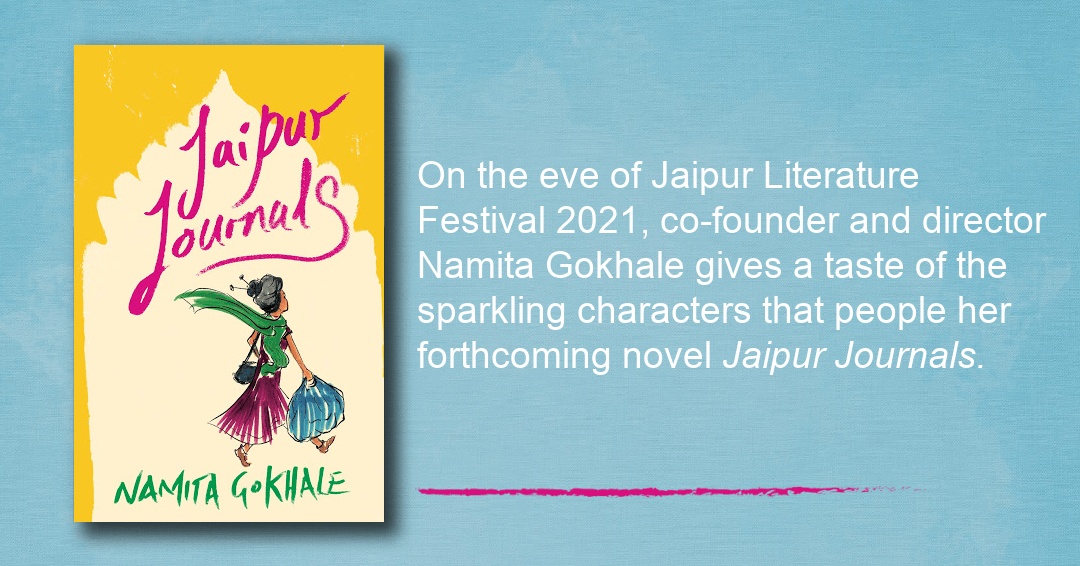My novel,
Jaipur Journals, (to be published in the U.K. by HopeRoad on April 29th), is set around a literature festival. Not just any litfest, but the Jaipur Literature Festival which I co-founded, and direct, with Willian Dalrymple. Our 14th edition, virtual this year, goes live from 19th to 28th February.
When an American friend, a famous literary figure, suggested that I write about our festival, the idea made me uncomfortable. My two lives, as writer and festival director, were separated by a thin but porous membrane. There seemed something not quite right about breaching this delicate balance.
Once I began writing, I couldn’t stop. All those years of observing the speakers and authors, the readers and festival goers, as they shared and absorbed their stories, spilled out in a rush of memory and anecdote.
Jaipur Journals is about the writing life and how writers search pattern and design amidst the unstructured chaos of the lived life. The characters in Jaipur Journals are described in terms of their backstories and their inner creative lives. Each of them has a very different compulsion to write.
Rudrani Rana, in her seventies, unmarried, fierce, cussed and lonely, carries her unpublished novel about with her in a canvas tote bag, too proud and too vulnerable to ever show or share it with anyone.
There is another kind of writer, for whom the escape into words is the escape into beauty. That is the case with Raju Srivastava - whose pen name is ‘Betaab’ - the impatient one. His father was a tailor but circumstances have led Raju to become a cat burglar, a lonely thief of the night. But he is also an accomplished Urdu poet. Betaab does find his poetic voice at the Jaipur Literature Festival, and fame and fortune deservedly follow.
There are other writers in my novel whose lives interest and collide. There is the iconic feminist author, Zoya Mankotia, who writes out of conviction, but has in the course of the story to find the courage to question and confront those same convictions. Gayatri is an academic, a historian at an American university. She struggles with her novel, because she doesn’t really have a story to tell, just the overwhelming desire to become a writer. There is young Anura, full of hopes and ambition, a counterpoint to Rudrani.
The metafictional novel tells their stories, and gives us a glimpse into the ones they are trying to tell. It is a love letter to the Jaipur festival, and to all the unwritten, untold tales in the world. It is a tribute to the ‘greatest literary show on earth’, and to that loneliest of tribes, the writers.
A novel is a shadow life. After a year of closed interior pandemic existence, images of the crowded grounds at Diggi Palace in Jaipur, of laughter and companionship, returned with a rush when I re-read the novel.
The festival will return, in its new hybrid avatar, like a newly birthed amphibian. And the stories, they will remain, as will the storytellers.
Namita Gokhale
New Delhi
February 2021
